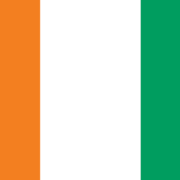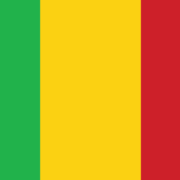West Africa
Guinea
Guinea, country of western Africa, located on the Atlantic coast. Three of western Africa’s major rivers—the Gambia, the Niger, and the Sénégal—rise in Guinea.
West Africa
Guinea, country of western Africa, located on the Atlantic coast. Three of western Africa’s major rivers—the Gambia, the Niger, and the Sénégal—rise in Guinea.
Population: 14,239,000
Main Religion: Islam (87.5%)
Christians: 3.4%
Natural resources are plentiful: in addition to its hydroelectric potential, Guinea possesses a large portion of the world’s bauxite reserves and significant amounts of iron, gold, and diamonds. Nonetheless, the economy is largely based on subsistence agriculture.
Training in Savings and small business management.
Guinea, under the name French Guinea, was a part of French West Africa until it achieved independence in 1958. It then was ruled successively by Sékou Touré (1958–84) and Lansana Conté (1984–2008), the latter of whom claimed power through a military coup. During the 1990s Guinea accommodated several hundred thousand war refugees from neighbouring Liberia and Sierra Leone, and conflicts between those countries and Guinea have continued to flare up over the refugee population. Following Conté’s death, a military junta took control of the country and suspended the constitution that had been adopted in 1991. Power was handed over to a freely elected civilian administration in 2010. The national capital, Conakry, lies on Tombo (Tumbo) Island and spreads up the Camayenne (Kaloum) Peninsula; it is the country’s main port. (Brittanica)
In Freedom House’s Freedom in the World 2023, Guinea is rated as ‘not free’. The report outlines the actions taken by the junta in Guinea during 2022. In January 2022, transitional President Mamady Doumbouya formed an 81-member National Transitional Council (CNT) tasked with creating a new Constitution and ushering in constitutional governance. However, no electoral framework has been put in place, and elections remain unscheduled.
By May 2022, the junta-controlled government had effectively prohibited public protests. Despite this, the National Front for the Defense of the Constitution (FNDC) persisted in organizing large-scale protests advocating for a swift return to civilian rule, even in the face of aggressive suppression by security forces. In August 2022, the government officially disbanded the FNDC, arresting multiple leaders and functionaries who were awaiting trial at the end of 2022.
Muslims (mostly Sunni) are dominant in almost all regions of the country. Most Christians (predominantly Roman Catholic) live in the cities, such as Conakry. Both Muslims and Christians are known to mix their faith with various traditional African religious practices.
The Soninke merchants from Ghana were responsible for the spread of Islam throughout Guinea during the 11th century. The northern part of the country was part of the great Mali Empire during the 13th and 14th centuries. Most of the indigenous tribes converted to Islam during this period. French missionaries were the first Europeans who brought Christianity to the country.
After independence in 1958, the Sékou Touré government followed a policy of socialism and secularism. The regime attempted to reduce the influence of various powerful Islamic and religious figures and also closed down the French Catholic schools and expelled most of the French missionaries from the country. The consecutive regimes that followed Touré attempted to lessen government control in religious affairs and promote tolerance among the different religious groups.
The suspended Constitution explicitly upholds the principles of freedom of religion and separation of religion and state and provides the right of persons to practice their religion openly without interference. However, the government attempts to restrict the influence of certain Islamist groups through its Secretariat of Religious Affairs (SRA). In 2019, SRA inspectors were present at most church and mosque religious services to monitor the content of sermons preached (US State Department, IRFR 2019 Guinea).
Most Christians and Muslims live side by side without major problems. However, there have been some violent incidents concerning property disputes, conversions from Islam to Christianity and marriage between Muslims and Christians. In some parts of the country, converts from Islam are not free to live their faith and must try to remain anonymous most of the time. In such a context, it is not possible for a convert to be seen with a Bible or anything that is likely to demonstrate his Christian faith. In animist and Muslim areas, the baptism of converts is opposed by their family.
In parts of the country where the influence of Islamic militants is being felt, converts from Islam are confronted with harassment and the threat of death. Similar persecution is also felt by converts from African traditional religions. When Christians refuse to participate in traditional rites, the community puts pressure on them. This situation is occurring regularly in Middle Guinea (Fouta Djallon) and also in Labé. Christians there are considered aliens within the community.
It is sometimes very difficult to obtain legal status or registration for churches because local administrators are reluctant to cooperate with Christians. (The Alliance of Churches is helping to make things easier for churches in this respect.) This seems to be a problem mainly for convert groups and Pentecostal churches. There are some cases of impediments to the construction of churches in certain villages in Forested Guinea and in the area of Kankan and Labé.
Christians are often compelled to participate in traditional religious ceremonies in certain regions.
Land-grabbing has become a significant issue affecting churches, with disputes often arising both with Muslims and animists over land ownership.
Young female converts to Christianity are frequently coerced into forced marriages against their will.
The process for registering new churches has been cumbersome and fraught with obstacles, making it challenging for Christian communities to establish new places of worship.
Christian pastors are subject to physical attacks, particularly from animists who view them as disrupting their traditional beliefs.
The government imposes strict guidelines on religious activities, including specifying what can be discussed during Sunday sermons, further limiting the freedom of the Christian community.

 Mali
Mali